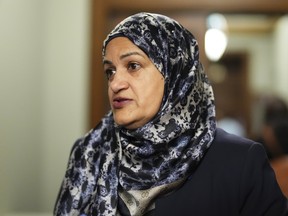The decision is also significant because it comes ahead of polls in states like Haryana and Maharashtra.
In a major decision, the Union Cabinet has approved a minimum support price of at least cost plus 50% for 14 crops ahead of the Kharif (summer) sowing season. The minimum support price of paddy has been increased by Rs 117, Information and Broadcasting Minister Ashwini Vaishnaw said at a Cabinet briefing on Wednesday.
A legal guarantee for minimum support price (MSP) has been a long-standing demand of farmers who have staged large-scale protests, including some held earlier this year, to press for it. The MSP decision is also significant because it comes ahead of Assembly polls in states like Haryana, Maharashtra and Jharkhand, which are scheduled to be held later this year.
“Prime Minister Narendra Modi has always given preference to farmers. The first decision in the third term was taken for farmers. In today’s Cabinet meeting also, a very important decision was taken for the welfare of farmers. The Kharif season is beginning and the Cabinet has approved a minimum support price of 14 crops for the season,” Mr Vaishnaw said.
“In the 2018 Union Budget, the government of India had taken a clear policy decision that the MSP has to be at least 1.5 times the cost of production. Today’s decision is in line with this principle. The cost has been established in a scientific manner and is based on a study by the Commission for Agricultural Costs and Prices in various districts and tehsils across the country,” he added.
The MSP for paddy for the season has been increased by 5.35%, or Rs 117, to Rs 2,300 per quintal and, as a comparison, the minister said the price was 1,310 in 2013-14.
The minimum support of cotton has also been increased to 7,121 for the normal variety and 7,521 for another variety, which is Rs 510 higher than the previous MSP. Millets have been a focus area for PM Modi and, among them, the MSP for jowar has been set at Rs 3,371, for ragi it is Rs 4,290, for bajra it is 2,625 and maize is at Rs 2,225.
Among pulses, the MSP for moong has been decided at Rs 8,682, tur at Rs 7,550 – Rs 550 higher than the previous figure – and Rs 7,400 for urad. The MSP for oilseeds, like sunflower and groundnut, has also seen an increase, the minister said.
According to news agency ANI, the increased MSP will mean a gain of Rs 35,000 crore to farmers over the previous year.
On Tuesday, the Prime Minister had released Rs 20,000 crore as part of the 17th instalment of the Kisan Samman Nidhi, an income support scheme under which farmers get up to Rs 6,000 per year.
On his first visit to Varanasi after being elected the MP from there for the third time, he had also said, “Agriculture will play a big role in making India the third-largest economy. We have to think global and become a leader in exports. Varanasi’s Langda mango, Jaunpur’s radish and Ghazipur’s ladyfinger are now reaching foreign markets… We have to take the country to new heights in packaged food exports. My dream is to see an Indian food product on every dining table in the world.”






